Ziauddin Sardar is one of the world’s foremost Muslim Intellectuals and author of more than 40 books on science, religion and contemporary culture. He is listed on Prospect Magazine’s “Britain’s Top 100 Public Intellectuals “ and has been described as “Britain’s own Muslim Polymath”.
Currently, Ziauddin Sardar is Chair of the Muslim Institute, a learned, fellowship society that promotes knowledge and debate, and editor of Critical Muslim, an innovative quarterly on contemporary Muslim ideas and
thought. He is also the Director of the Centre of Postnormal Policy and Futures Studies, East West Chicago, and the editor of its journal East West Affairs.
He has been described as a ‘critical polymath’ and works across a number of
disciplines ranging from Islamic studies and
futures studies to science policy, literary criticism, information science to cultural
relations, art criticism and critical theory.
He was born in Pakistan in 1951 and grew up in Hackney, East London. Ziauddin Sardar has worked as science journalist for Nature and New Scientist and as a television reporter for London Weekend
Television. He was a columnist on the New Statesman for a number of years and has
served as a Commissioner for the Equality and
Human Rights Commission and as a member of
the Interim National Security Forum.
Ziauddin Sardar has published over 45 books.
The Future of Muslim Civilisation (1979) and Islamic Futures: The Shape of Ideas to Come (1985) are regarded as classic studies on the
future of Islam. He pioneered the discussion on science in Muslim societies, with a series of articles in Nature and New Scientist and a number of books, including Science,
Technology and Development in the Muslim World (1977), The Touch of Midas: Science, Values and the Environment in Islam and the West (1982), which is seen as a seminal
work, The Revenge of Athena: Science,
Exploitation and the Third World (1988)
and Explorations in Islamic Science (1989).
Postmodernism and the Other (1998) has acquired a cultish following and Why Do People Hate America? (2002) became an
international bestseller.
Ziauddin Sardar’s two volumes of biography
and travel, Desperately Seeking Paradise: Journeys of a Sceptical Muslim (2004) and
Balti Britain: A Provocative Journey Through
Asian Britain (2008) have received wide acclaim. Reading the Qur’an (2011), which
began as a Guardian blog, has been described
as a ‘mini masterpiece’. And Future: All That
Matters is probably the only accessible introduction to futures studies. He has also
authored a number of study guides in the
Introducing series, including the
international bestsellers Introducing Islam
and Introducing Chaos.
Two collections of his
writings are available as Islam, Postmodernism and Other Futures: A Ziauddin
Sardar Reader (2003) and How Do You Know?:
Reading Ziauddin Sardar on Islam, Science and
Cultural Relations (2006). Ziauddin Sardar has written and presented
numerous television programmes – most
recently ‘Battle for Islam’, a 90-minute
documentary for BBC2 and ‘Dispatches’ on
Pakistan for Channel 4. His earlier
programmes include ‘Encounters with Islam’
(1985), a series of four shows for BBC and
‘Islamic Conversations’ (1994), a series of
six programmes for Channel 4. He was a
regular Friday Panel Member on ‘World News
Tonight’ on Sky News (2005-2007). Formerly Editor of Futures (1999-2012), the
monthly journal of policy, planning and
futures studies, he is now consulting editor
of Futures.
He was a long-standing columnist
on the New Statements and has contributed to
the Guardian, the Times, the Independent and numerous other newspapers and magazines. Currently, Ziauddin Sardar is Chair of the
Muslim Institute, a learned, fellowship
society that promotes knowledge and debate,
and editor of Critical Muslim, an innovative
quarterly on contemporary Muslim ideas and
thought. He also edits East West Affairs, ‘a
quarterly journal of North-South relations in
postnormal times’. Widely known for his radio and television
appearances, he writes an occasional ‘Credo’
column for the Times. His history of Mecca: The Sacred City will be published by Bloomsbury in the autumn of 2014.

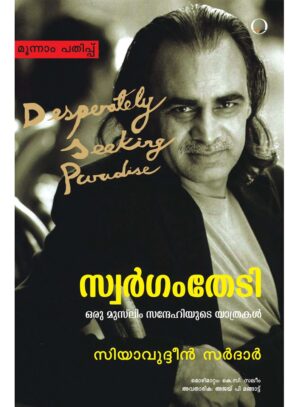
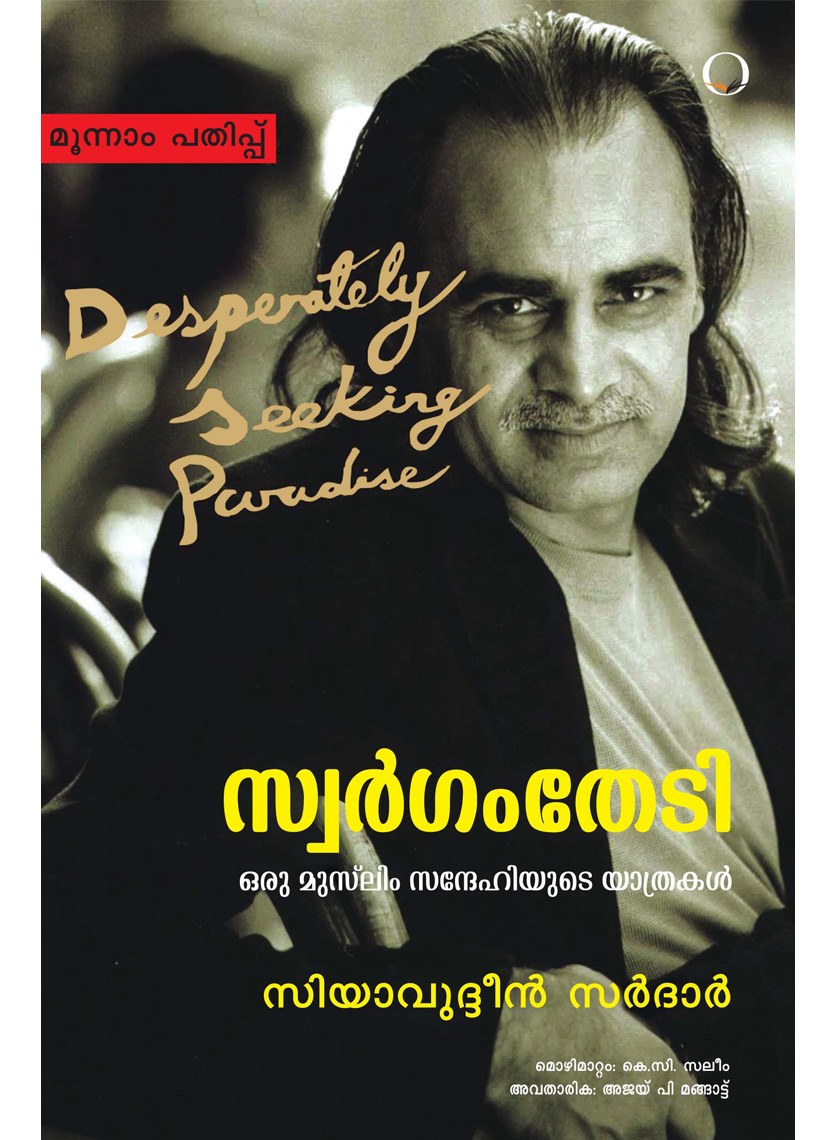
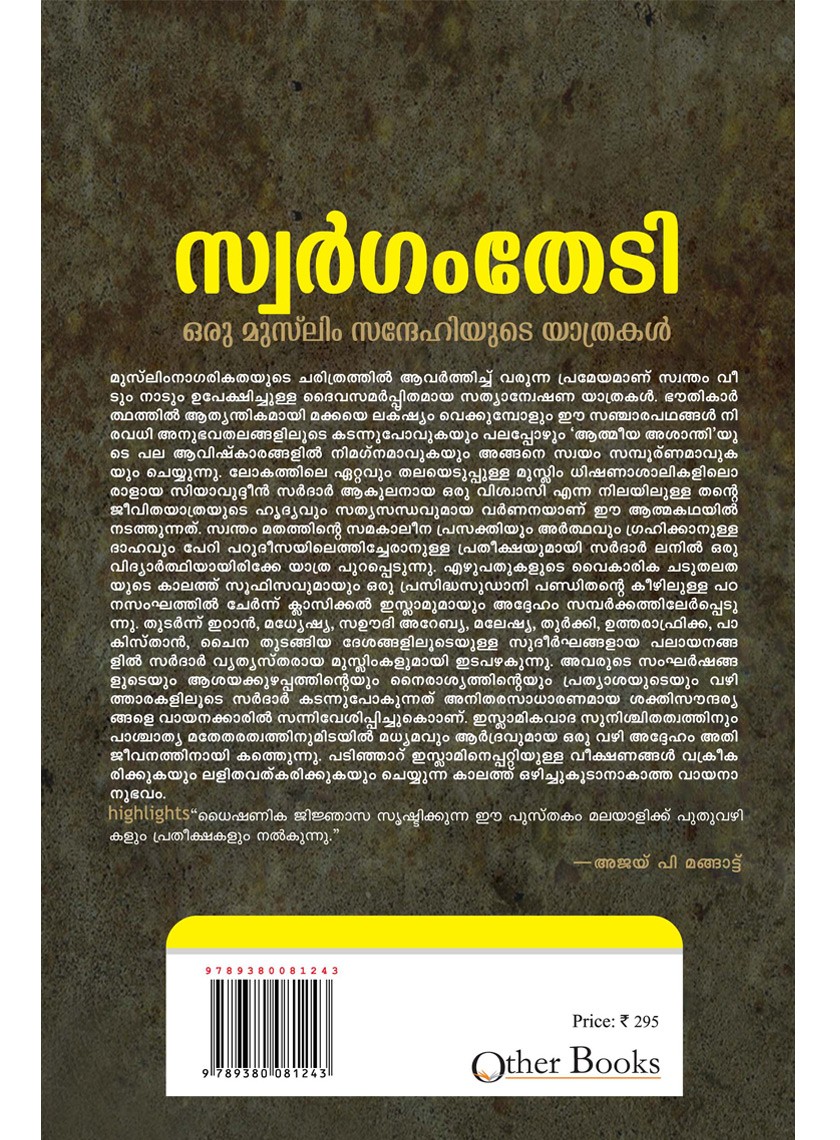
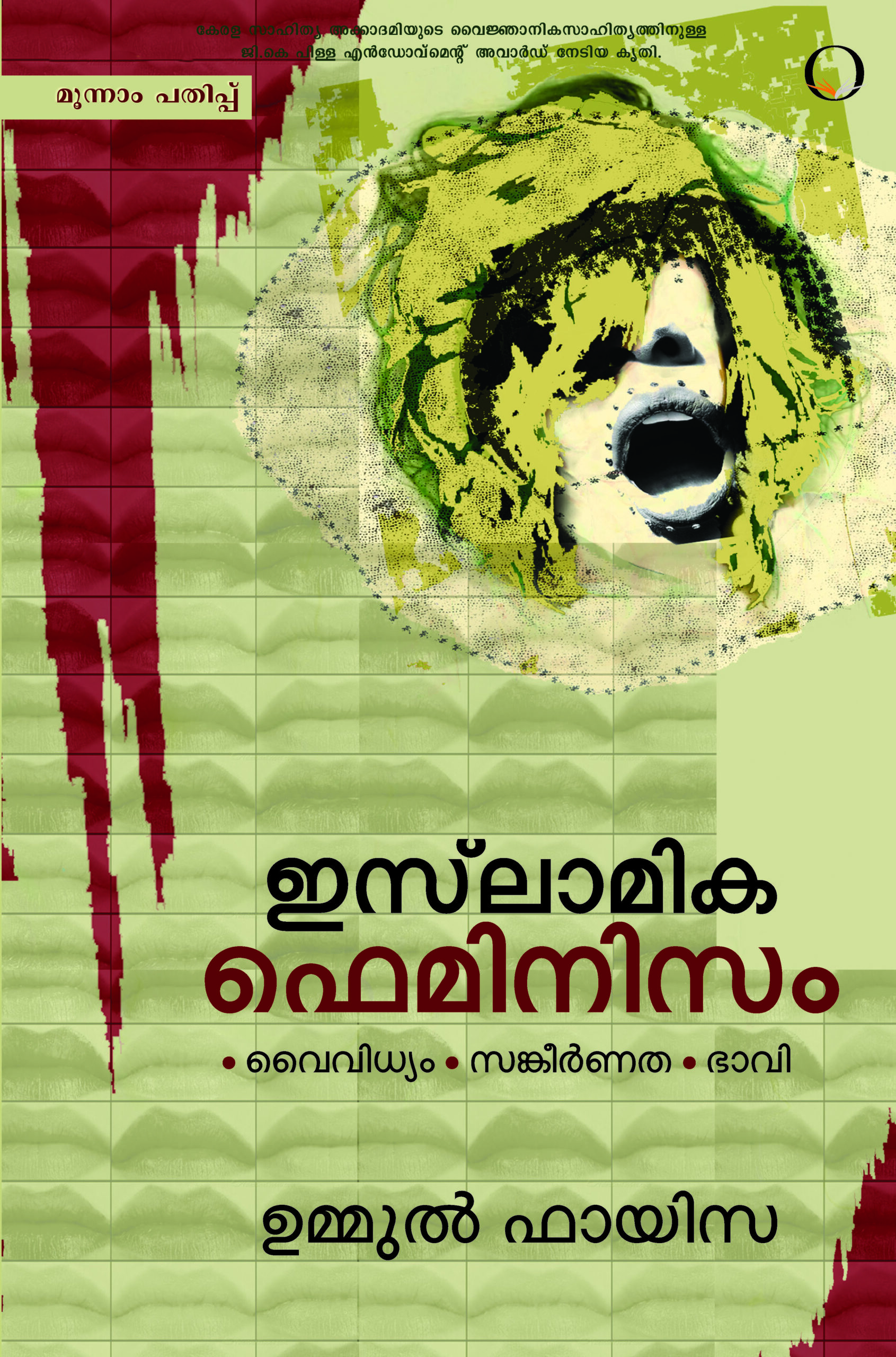
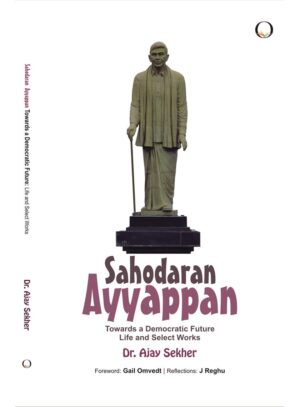

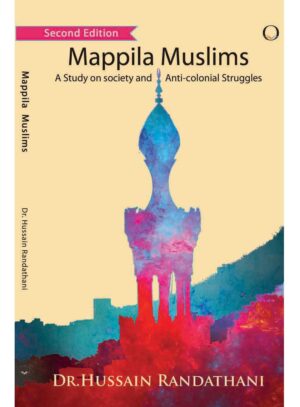


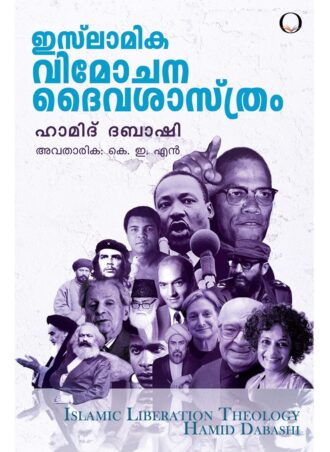
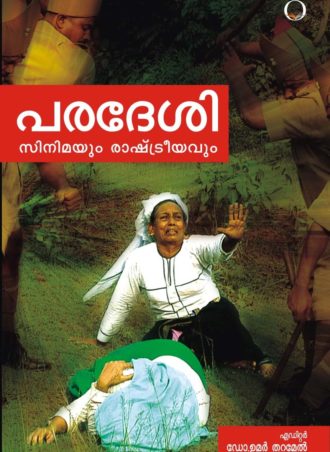
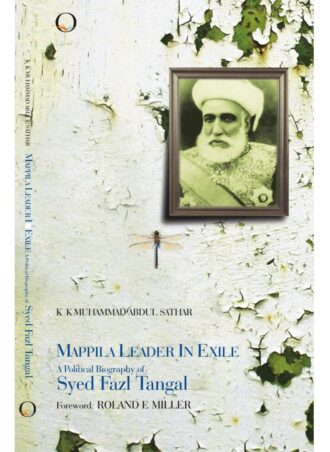
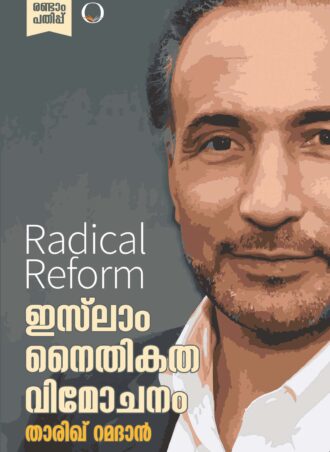
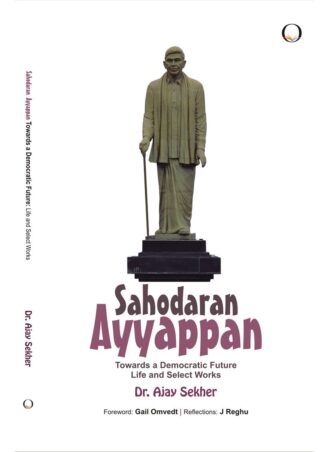


Your review is awaiting approval
acheter kamagra site fiable: kamagra livraison 24h – acheter Kamagra sans ordonnance
Your review is awaiting approval
buy erectile dysfunction pills online ed prescription online or where to buy ed pills
https://www.google.com.uy/url?q=https://eropharmfast.com what is the cheapest ed medication
cheapest ed medication online ed pills and buying erectile dysfunction pills online erectile dysfunction meds online
Your review is awaiting approval
Over the counter antibiotics pills buy antibiotics or over the counter antibiotics
http://naiyoujc.ff66.net/productshow.asp?id=30&mnid=51913&url=http://biotpharm.com cheapest antibiotics
buy antibiotics for uti over the counter antibiotics and Over the counter antibiotics pills buy antibiotics for uti
Your review is awaiting approval
buy ed meds online online ed medicine or discount ed pills
https://www.google.mw/url?q=https://eropharmfast.com ed meds on line
buying erectile dysfunction pills online cheapest ed pills and get ed meds today online ed drugs
Your review is awaiting approval
cheapest ed medication Ero Pharm Fast Ero Pharm Fast
Your review is awaiting approval
cheapest antibiotics: buy antibiotics for uti – buy antibiotics from india
Your review is awaiting approval
buy antibiotics from canada buy antibiotics or antibiotic without presription
https://sec.pn.to/jump.php?http://biotpharm.com buy antibiotics from india
buy antibiotics from india Over the counter antibiotics pills and get antibiotics without seeing a doctor buy antibiotics from india
Your review is awaiting approval
Pharm Au24 Discount pharmacy Australia pharmacy online australia
Your review is awaiting approval
best online doctor for antibiotics: Biot Pharm – get antibiotics quickly
Your review is awaiting approval
Pharm Au 24: Medications online Australia – Online drugstore Australia
Your review is awaiting approval
get antibiotics quickly: antibiotic without presription – buy antibiotics from canada
Your review is awaiting approval
buy antibiotics from canada: buy antibiotics for uti – cheapest antibiotics
Your review is awaiting approval
cost of ed meds Ero Pharm Fast buy erectile dysfunction pills
Your review is awaiting approval
best online doctor for antibiotics over the counter antibiotics or buy antibiotics from india
https://secure.aos.org/login.aspx?returnurl=http://biotpharm.com/ get antibiotics without seeing a doctor
cheapest antibiotics buy antibiotics over the counter and buy antibiotics for uti buy antibiotics online
Your review is awaiting approval
antibiotic without presription: Over the counter antibiotics for infection – antibiotic without presription
Your review is awaiting approval
buy antibiotics from india: Biot Pharm – antibiotic without presription
Your review is awaiting approval
Pharm Au 24 Medications online Australia or pharmacy online australia
https://www.google.nr/url?sa=t&url=https://pharmau24.shop Pharm Au 24
Online medication store Australia Buy medicine online Australia and pharmacy online australia Licensed online pharmacy AU
Your review is awaiting approval
https://eropharmfast.shop/# get ed meds online
Your review is awaiting approval
cheap ed meds online: Ero Pharm Fast – Ero Pharm Fast
Your review is awaiting approval
Over the counter antibiotics for infection: buy antibiotics online uk – buy antibiotics
Your review is awaiting approval
online pharmacy australia: Pharm Au 24 – pharmacy online australia
Your review is awaiting approval
Over the counter antibiotics pills Biot Pharm Over the counter antibiotics pills
Your review is awaiting approval
Online drugstore Australia: PharmAu24 – Medications online Australia
Your review is awaiting approval
Ero Pharm Fast: Ero Pharm Fast – cheap ed meds
Your review is awaiting approval
http://pharmau24.com/# Pharm Au 24
Your review is awaiting approval
Ero Pharm Fast: ed pills – buy ed medication
Your review is awaiting approval
Ero Pharm Fast: buy ed medication online – online erectile dysfunction medication
Your review is awaiting approval
Ero Pharm Fast erectile dysfunction medicine online cheap ed medication
Your review is awaiting approval
Online medication store Australia: pharmacy online australia – Online medication store Australia
Your review is awaiting approval
cialis 20mg side effects Tadal Access cialis ingredients
Your review is awaiting approval
when to take cialis 20mg: TadalAccess – buy generic cialis online
Your review is awaiting approval
where can i buy cialis purchase brand cialis or cialis not working first time
https://clients1.google.sc/url?q=https://tadalaccess.com cialis online no prior prescription
cialis from canada buying cialis online canadian order and cialis alternative cialis dosage for ed
Your review is awaiting approval
cialis vs flomax Tadal Access is there a generic cialis available
Your review is awaiting approval
https://tadalaccess.com/# cialis copay card
Your review is awaiting approval
mantra 10 tadalafil tablets: Tadal Access – can you drink wine or liquor if you took in tadalafil
Your review is awaiting approval
cialis australia online shopping no prescription tadalafil or cialis using paypal in australia
https://www.google.com.bh/url?q=https://tadalaccess.com cialis for daily use
buying cialis online canadian order tadalafil 10mg side effects and best time to take cialis 5mg buy cialis generic online
Your review is awaiting approval
e-cialis hellocig e-liquid Tadal Access tadalafil generic reviews
Your review is awaiting approval
cialis bodybuilding: TadalAccess – cialis free
Your review is awaiting approval
cialis a domicilio new jersey cialis professional or can you drink wine or liquor if you took in tadalafil
https://images.google.ne/url?sa=t&url=https://tadalaccess.com buy cialis generic online 10 mg
cialis manufacturer coupon lilly cialis prescription cost and does cialis lower your blood pressure tadalafil cialis
Your review is awaiting approval
cialis 20 mg from united kingdom TadalAccess cheap cialis generic online
Your review is awaiting approval
cialis super active plus reviews: tadalafil tablets – cialis 20mg tablets
Your review is awaiting approval
https://tadalaccess.com/# tadalafil 10mg side effects
Your review is awaiting approval
cialis from canadian pharmacy registerd TadalAccess generic tadalafil tablet or pill photo or shape
Your review is awaiting approval
cialis sample pack: TadalAccess – tadalafil citrate liquid
Your review is awaiting approval
canada cialis generic levitra vs cialis or cialis sample request form
https://www.google.com.np/url?q=https://tadalaccess.com cialis professional ingredients
cialis patent expiration date buying cialis online safely and what possible side effect should a patient taking tadalafil report to a physician quizlet cialis free trial
Your review is awaiting approval
teva generic cialis cialis no prescription overnight delivery or shelf life of liquid tadalafil
https://images.google.com.tn/url?q=https://tadalaccess.com cialis coupon code
vardenafil vs tadalafil tadalafil eli lilly and purchase cialis online maximpeptide tadalafil review
Your review is awaiting approval
https://tadalaccess.com/# buy liquid cialis online
Your review is awaiting approval
e-cialis hellocig e-liquid cialis purchase canada or cialis paypal
https://100kursov.com/away/?url=https://tadalaccess.com cialis difficulty ejaculating
tadalafil 5mg generic from us tadalafil (exilar-sava healthcare) version of cialis] (rx) lowest price and cialis ingredients cialis 5mg daily how long before it works
Your review is awaiting approval
vardenafil tadalafil sildenafil side effects cialis tadalafil cost cvs
Your review is awaiting approval
generic cialis from india: cialis 5mg how long does it take to work – cheap cialis generic online
Your review is awaiting approval
buy cialis united states Tadal Access cialis price costco
Your review is awaiting approval
https://tadalaccess.com/# how long does it take for cialis to start working
Your review is awaiting approval
cialis black in australia: TadalAccess – tadalafil tablets erectafil 20
Your review is awaiting approval
cheap tadalafil no prescription tadalafil vs cialis or ordering cialis online
https://maps.google.co.ao/url?sa=t&url=https://tadalaccess.com tadalafil dapoxetine tablets india
cialis logo tadalafil from nootropic review and cialis free trial coupon cheap cialis with dapoxetine
Your review is awaiting approval
cialis paypal canada buy tadalafil online no prescription or what is tadalafil made from
https://images.google.com.fj/url?q=https://tadalaccess.com cialis 20 mg how long does it take to work
buy cialis tadalafil cialis savings card and buy tadalafil online no prescription dapoxetine and tadalafil
Your review is awaiting approval
cialis recommended dosage cheap cialis pills uk buy tadalafil reddit
Your review is awaiting approval
tadalafil 5 mg tablet: TadalAccess – mantra 10 tadalafil tablets
Your review is awaiting approval
https://tadalaccess.com/# buy cialis online reddit
Your review is awaiting approval
cialis copay card: canada cialis – overnight cialis delivery usa
Your review is awaiting approval
is tadalafil the same as cialis cipla tadalafil review non prescription cialis
Your review is awaiting approval
https://tadalaccess.com/# cialis how does it work
Your review is awaiting approval
what is the active ingredient in cialis: is tadalafil as effective as cialis – best place to get cialis without pesricption
Your review is awaiting approval
does cialis really work where to buy tadalafil online or buy generic cialis
https://www.google.com.uy/url?sa=t&url=https://tadalaccess.com sunrise pharmaceutical tadalafil
cialis 40 mg reviews cialis same as tadalafil and oryginal cialis cialis dosages
Your review is awaiting approval
cialis ingredients TadalAccess cialis drug class
Your review is awaiting approval
cialis 100mg from china tadalafil online canadian pharmacy or what doe cialis look like
http://www.sacc.to/_cgi/common/redirect.asp?site=https://tadalaccess.com/ how to buy tadalafil
cialis free trial canada cialis coupon rite aid and cialis none prescription buy cialis united states
Your review is awaiting approval
buy cialis no prescription: TadalAccess – no prescription female cialis
Your review is awaiting approval
walmart cialis price: Tadal Access – cialis difficulty ejaculating
Your review is awaiting approval
https://tadalaccess.com/# mint pharmaceuticals tadalafil
Your review is awaiting approval
cialis back pain natural cialis cialis professional ingredients
Your review is awaiting approval
cialis lower blood pressure: brand cialis – how many mg of cialis should i take
Your review is awaiting approval
https://tadalaccess.com/# tadalafil buy online canada
Your review is awaiting approval
tadalafil cost cvs TadalAccess cialis dapoxetine
Your review is awaiting approval
what does a cialis pill look like: cialis stories – cheapest 10mg cialis
Your review is awaiting approval
cialis how does it work buy cialis overnight shipping or is there a generic cialis available?
http://www.freerepublic.com/~wilik4/links?U=https://tadalaccess.com tadalafil softsules tuf 20
best price on generic tadalafil cialis w/o perscription and cialis tablets no presciption cialis
Your review is awaiting approval
canada cialis for sale: cialis 100mg from china – cialis overnight deleivery
Your review is awaiting approval
cialis and melanoma cialis store in philippines cialis payment with paypal
Your review is awaiting approval
https://tadalaccess.com/# cost of cialis for daily use
Your review is awaiting approval
difference between sildenafil tadalafil and vardenafil buying cialis in canada or buy cialis canada paypal
https://cse.google.lv/url?sa=i&url=https://tadalaccess.com when will cialis become generic
cialis where can i buy buying cialis generic and cialis pills online cialis buy australia online
Your review is awaiting approval
buying generic cialis: cialis prescription assistance program – cialis testimonials
Your review is awaiting approval
cialis for women: cialis from canada to usa – cialis dapoxetine australia
Your review is awaiting approval
cialis timing TadalAccess cialis daily dosage
Your review is awaiting approval
best time to take cialis 20mg is tadalafil and cialis the same thing? or cialis generic best price
https://images.google.com.af/url?sa=t&url=https://tadalaccess.com recreational cialis
buy cialis without a prescription cialis after prostate surgery and trusted online store to buy cialis order cialis online no prescription reviews
Your review is awaiting approval
https://tadalaccess.com/# tadalafil buy online canada
Your review is awaiting approval
п»їwhat can i take to enhance cialis: mambo 36 tadalafil 20 mg – cialis 10mg ireland
Your review is awaiting approval
buying cheap cialis online: TadalAccess – buy cipla tadalafil
Your review is awaiting approval
how to get cialis for free how to buy cialis or cialis prices in mexico
https://cse.google.lv/url?q=https://tadalaccess.com vidalista tadalafil reviews
is there a generic equivalent for cialis what is cialis used for and buy cialis online in austalia tadalafil no prescription forum
Your review is awaiting approval
cialis vs.levitra stockists of cialis how long does it take for cialis to take effect
Your review is awaiting approval
cialis for sale online: cialis for daily use cost – cialis super active reviews
Your review is awaiting approval
cialis blood pressure: Tadal Access – tadalafil without a doctor prescription
Your review is awaiting approval
cialis generic release date prices cialis or cialis sell
https://images.google.gm/url?sa=t&url=https://tadalaccess.com cialis is for daily use
what does cialis look like cialis no prescription and tadalafil best price 20 mg online cialis no prescription
Your review is awaiting approval
buy cialis in toronto brand cialis buy cialis no prescription
Your review is awaiting approval
what does generic cialis look like is cialis covered by insurance or cialis discount card
http://fortrucker-env.com/leaving.aspx?ext=http://tadalaccess.com cialis pills for sale
cialis 20mg review difference between tadalafil and sildenafil and tadacip tadalafil cheap t jet 60 cialis online
Your review is awaiting approval
cialis generic purchase: TadalAccess – cialis generic best price
Your review is awaiting approval
cialis manufacturer coupon free trial tadalafil 20mg canada or cialis softabs online
https://images.google.tk/url?sa=t&url=https://tadalaccess.com when does cialis patent expire
tadalafil (exilar-sava healthcare) version of cialis] (rx) lowest price cialis generic over the counter and how long does it take for cialis to start working cialis pills for sale
Your review is awaiting approval
https://tadalaccess.com/# cialis for performance anxiety
Your review is awaiting approval
when will teva’s generic tadalafil be available in pharmacies: TadalAccess – cialis contraindications
Your review is awaiting approval
mambo 36 tadalafil 20 mg reviews Tadal Access cialis store in philippines
Your review is awaiting approval
cialis or levitra: cialis difficulty ejaculating – canada drug cialis
Your review is awaiting approval
cialis for sale in toront ontario how much does cialis cost at walmart or whats cialis
https://www.google.tg/url?q=https://tadalaccess.com tadalafil tablets 40 mg
cost of cialis for daily use cialis not working anymore and buy tadalafil cheap online cialis 20 mg from united kingdom
Your review is awaiting approval
how to get cialis without doctor: TadalAccess – cialis without prescription
Your review is awaiting approval
is generic tadalafil as good as cialis Tadal Access buy cialis united states
Your review is awaiting approval
mambo 36 tadalafil 20 mg: walmart cialis price – cialis side effects
Your review is awaiting approval
what is tadalafil made from cialis a domicilio new jersey or does medicare cover cialis
https://www.google.com.na/url?q=https://tadalaccess.com what does cialis do
maximum dose of tadalafil where to buy tadalafil online and purchase generic cialis para que sirve las tabletas cialis tadalafil de 5mg
Your review is awaiting approval
https://tadalaccess.com/# best reviewed tadalafil site
Your review is awaiting approval
cialis price comparison no prescription: pharmacy 365 cialis – tadalafil 5mg once a day
Your review is awaiting approval
cialis canada sale buy cialis canadian cialis coupon rite aid
Your review is awaiting approval
cialis sublingual: cialis 20mg price – what is cialis
Your review is awaiting approval
mail order cialis cialis over the counter usa or shelf life of liquid tadalafil
https://maps.google.com.ua/url?q=https://tadalaccess.com where to buy tadalafil online
uses for cialis where to get the best price on cialis and cost of cialis for daily use cialis purchase
Your review is awaiting approval
what is the active ingredient in cialis: Tadal Access – cialis generic versus brand name
Your review is awaiting approval
walmart cialis price TadalAccess best price for cialis
Your review is awaiting approval
what is cialis used to treat: Tadal Access – cialis 100mg from china
Your review is awaiting approval
how long does it take for cialis to take effect cialis milligrams or cialis 20 mg best price
http://pornorasskazy.com/forum/away.php?s=https://tadalaccess.com tadalafil dose for erectile dysfunction
cialis free trial 2018 cialis dosis and cialis purchase canada cialis price comparison no prescription
Your review is awaiting approval
https://tadalaccess.com/# which is better cialis or levitra
Your review is awaiting approval
cialis for sale brand: TadalAccess – maximum dose of cialis in 24 hours
Your review is awaiting approval
tadalafil troche reviews when does tadalafil go generic or tadalafil citrate liquid
https://yassu.jp/bidan/town/kboard.cgi?mode=res_html&owner=proscar&url=tadalaccess.com maximum dose of tadalafil
canadian no prescription pharmacy cialis cialis and melanoma and tadalafil (tadalis-ajanta) cialis tadalafil discount
Your review is awaiting approval
cialis free samples Tadal Access cialis canada sale
Your review is awaiting approval
tadalafil versus cialis: when will generic cialis be available in the us – cialis what age
Your review is awaiting approval
cialis interactions: TadalAccess – is there a generic cialis available
Your review is awaiting approval
buy cialis generic online 10 mg what is cialis good for or cialis dosage 40 mg
https://medakahonpo.com/MT/index.cgi?id=1&mode=redirect&no=578&ref_eid=3332&url=http://tadalaccess.com cheap tadalafil 10mg
cialis generic for sale tadalafil generic in usa and what is cialis good for cialis patent
Your review is awaiting approval
what is cialis good for cialis 100 mg usa active ingredient in cialis
Your review is awaiting approval
vardenafil vs tadalafil: TadalAccess – cialis website
Your review is awaiting approval
https://tadalaccess.com/# what are the side effect of cialis
Your review is awaiting approval
cialis alternative: TadalAccess – tadalafil generic cialis 20mg
Your review is awaiting approval
cialis definition order generic cialis online 20 mg 20 pills or cialis super active plus
https://toolbarqueries.google.com.sb/url?q=https://tadalaccess.com cialis effects
tadalafil 5 mg tablet can you drink wine or liquor if you took in tadalafil and cheap generic cialis buy cialis shipment to russia
Your review is awaiting approval
no prescription female cialis cialis generic or viagara cialis levitra
https://clients1.google.com.kw/url?q=https://tadalaccess.com how much does cialis cost at walgreens
how to buy cialis cialis las vegas and brand cialis with prescription tadalafil without a doctor prescription
Your review is awaiting approval
tadalafil walgreens buy cialis online without prescription cialis walgreens
Your review is awaiting approval
what happens if a woman takes cialis: buying cialis online usa – special sales on cialis
Your review is awaiting approval
order cialis no prescription: TadalAccess – cialis generic name
Your review is awaiting approval
cialis generic canada benefits of tadalafil over sidenafil or cialis tadalafil
https://cse.google.com.pk/url?q=https://tadalaccess.com cialis free trial
cialis dapoxetine cialis once a day and how to buy tadalafil online generic tadalafil 40 mg
Your review is awaiting approval
cialis with dapoxetine is there a generic cialis available? cialis for performance anxiety
Your review is awaiting approval
tadalafil tablets 20 mg global: cialis usa – cialis before and after pictures
Your review is awaiting approval
cialis las vegas: Tadal Access – cialis not working anymore
Your review is awaiting approval
https://tadalaccess.com/# where can i get cialis
Your review is awaiting approval
cialis reviews photos canada cialis generic or tadalafil tablets 20 mg reviews
http://images.google.ae/url?q=https://tadalaccess.com viagara cialis levitra
tadalafil 10mg side effects best time to take cialis 5mg and what is the difference between cialis and tadalafil what to do when cialis stops working
Your review is awaiting approval
online cialis prescription: TadalAccess – cialis effect on blood pressure
Your review is awaiting approval
cialis dapoxetine TadalAccess cialis commercial bathtub
Your review is awaiting approval
https://tadalaccess.com/# benefits of tadalafil over sidenafil
Your review is awaiting approval
super cialis: TadalAccess – what does cialis do
Your review is awaiting approval
https://tadalaccess.com/# cialis walgreens
Your review is awaiting approval
cialis online overnight shipping generic cialis or peptide tadalafil reddit
http://www.gamer.ru/runaway?href=http://tadalaccess.com tadalafil tablets
buy cialis no prescription overnight cialis purchase and prices on cialis cialis dosage side effects
Your review is awaiting approval
buying cialis online canadian order: Tadal Access – cialis alcohol
Your review is awaiting approval
canadian pharmacy cialis TadalAccess tadalafil lowest price
Your review is awaiting approval
online cialis e20 pill cialis or <a href=" http://www.studioalt.ru/info.php?a=cialis+without+a+doctors+prescription “>over the counter cialis walgreens
https://clients1.google.com.sb/url?q=https://tadalaccess.com cialis sales in victoria canada
buy cialis online free shipping tadalafil online canadian pharmacy and tadalafil hong kong tadalafil generic 20 mg ebay
Your review is awaiting approval
tadalafil brand name: TadalAccess – buy cialis shipment to russia
Your review is awaiting approval
safest and most reliable pharmacy to buy cialis pregnancy category for tadalafil or does medicare cover cialis
https://date.gov.md/ckan/ru/api/1/util/snippet/api_info.html?resource_id=a0321cc2-badb-4502-9c51-d8bb8d029c54&datastore_root_url=http://tadalaccess.com cialis used for
tadalafil professional review cialis at canadian pharmacy and no prescription cialis how much does cialis cost at cvs
Your review is awaiting approval
teva generic cialis cialis softabs online cialis 2.5 mg
Your review is awaiting approval
online cialis: order generic cialis online – cialis next day delivery
Your review is awaiting approval
cialis with out a prescription: buying cialis online – when will generic cialis be available
Your review is awaiting approval
cialis com coupons cialis 800 black canada when will generic cialis be available in the us
Your review is awaiting approval
cialis black in australia evolution peptides tadalafil or cialis dosage 20mg
http://0.7ba.info/out.php?url=http://tadalaccess.com what is the generic name for cialis
cialis 10 mg cialis milligrams and cialis indications buy generic tadalafil online cheap
Your review is awaiting approval
buy cialis usa: TadalAccess – cialis experience forum
Your review is awaiting approval
cialis com free sample: what possible side effect should a patient taking tadalafil report to a physician quizlet – cialis 20 mg coupon
Your review is awaiting approval
how much does cialis cost at cvs cialis dosages or what does a cialis pill look like
http://www.bloodpressureuk.org/mediacentre/Newsreleases/SaltInMedicine?came_from=http://tadalaccess.com/ cialis tadalafil cheapest online
cialis side effects cialis otc 2016 and best reviewed tadalafil site 20 mg tadalafil best price
Your review is awaiting approval
https://tadalaccess.com/# cialis and melanoma
Your review is awaiting approval
cialis what is it cialis 20 mg duration or blue sky peptide tadalafil review
http://pokatili.ru/redirect.php?url=https://tadalaccess.com buy tadalafil online no prescription
cialis how long what does a cialis pill look like and where can i buy cialis online in canada cheap canadian cialis
Your review is awaiting approval
natural cialis buy cialis shipment to russia pastillas cialis
Your review is awaiting approval
viagara cialis levitra: TadalAccess – when is the best time to take cialis
Your review is awaiting approval
cialis generic cost: what does cialis do – cialis 100mg review
Your review is awaiting approval
https://tadalaccess.com/# purchase cialis online
Your review is awaiting approval
tadalafil generic usa cialis going generic cialis for sale in canada
Your review is awaiting approval
cialis 5mg price walmart: Tadal Access – buy voucher for cialis daily online
Your review is awaiting approval
cialis insurance coverage pregnancy category for tadalafil or is tadalafil and cialis the same thing?
http://sat-plus.net/ext_link?url=https://tadalaccess.com cialis manufacturer coupon 2018
cialis price cvs generic cialis tadalafil 20mg india and canada cialis for sale cialis 5mg price walmart
Your review is awaiting approval
is there a generic cialis available: Tadal Access – cialis amazon
Your review is awaiting approval
https://tadalaccess.com/# buy cialis online no prescription
Your review is awaiting approval
how long does tadalafil take to work what happens when you mix cialis with grapefruit? or tadalafil soft tabs
http://cybermann.com/main.php?g2_view=core.UserAdmin&g2_subView=core.UserRecoverPassword&g2_return=https://tadalaccess.com cialis cheap
cialis sample request form cialis over the counter at walmart and why is cialis so expensive vidalista 20 tadalafil tablets
Your review is awaiting approval
is generic cialis available in canada Tadal Access cialis super active plus reviews
Your review is awaiting approval
cialis manufacturer coupon 2018 cialis 5 mg tablet or black cialis
https://www.google.co.ve/url?sa=t&url=https://tadalaccess.com whats the max safe dose of tadalafil xtenda for a healthy man
stendra vs cialis buy tadalafil no prescription and cialis for prostate cialis contraindications
Your review is awaiting approval
where to buy generic cialis: cialis with dapoxetine – cialis pills for sale
Your review is awaiting approval
cialis blood pressure: cheap cialis with dapoxetine – buy cialis with dapoxetine in canada
Your review is awaiting approval
https://tadalaccess.com/# cialis price walmart
Your review is awaiting approval
what does cialis do Tadal Access cialis free trial canada
Your review is awaiting approval
where to buy tadalafil in singapore: cialis cost per pill – cialis recreational use
Your review is awaiting approval
pharmacy 365 cialis cialis 20 mg tablets and prices or cialis street price
http://nkt-rf.ru/bitrix/rk.php?goto=https://tadalaccess.com cialis online overnight shipping
cialis how long does it last buy cialis pro and what does cialis do pastillas cialis
Your review is awaiting approval
cialis prices how to get cialis without doctor or cheap tadalafil no prescription
https://cse.google.dj/url?q=https://tadalaccess.com cialis side effects heart
tadalafil pulmonary hypertension printable cialis coupon and cialis insurance coverage free samples of cialis
Your review is awaiting approval
sanofi cialis otc: cialis for sale – what is cialis
Your review is awaiting approval
is tadalafil available at cvs Tadal Access cialis online pharmacy
Your review is awaiting approval
prescription free cialis: cheap cialis – cialis san diego
Your review is awaiting approval
https://tadalaccess.com/# teva generic cialis
Your review is awaiting approval
cialis company cialis black 800 to buy in the uk one pill or cialis generics
https://www.google.com.qa/url?q=https://tadalaccess.com cialis coupon walgreens
us cialis online pharmacy vardenafil tadalafil sildenafil and cialis same as tadalafil cialis cheap
Your review is awaiting approval
cialis no prescription overnight delivery: best price on generic cialis – price comparison tadalafil
Your review is awaiting approval
cialis over the counter cialis from canadian pharmacy registerd compounded tadalafil troche life span
Your review is awaiting approval
cialis coupon code: buy cialis cheap fast delivery – cialis bathtub
Your review is awaiting approval
https://tadalaccess.com/# buying cialis in canada
Your review is awaiting approval
canadian pharmacy cialis 20mg cialis 5 mg price or cialis for sale online
https://soccer.sincsports.com/ttlogin.aspx?tid=german&dfix=y&domain=tadalaccess.com tadalafil vs sildenafil
cialis canada free sample tadalafil daily use and cialis price comparison no prescription cialis canada price
Your review is awaiting approval
canada pharmacy cialis cialis covered by insurance or is there a generic cialis available
https://www.yourpshome.net/proxy.php?link=https://tadalaccess.com canada drug cialis
cialis professional 20 lowest price buying cialis in mexico and cialis 20 milligram canadian no prescription pharmacy cialis
Your review is awaiting approval
when will cialis be over the counter: cialis generic timeline – cialis manufacturer
Your review is awaiting approval
cialis generic online: Tadal Access – cialis tadalafil 20mg kaufen
Your review is awaiting approval
cialis w/dapoxetine cialis super active plus cialis otc 2016
Your review is awaiting approval
cialis in canada cialis prescription online or tadalafil long term usage
https://clients1.google.com.my/url?q=https://tadalaccess.com cialis 20 mg tablets and prices
what happens when you mix cialis with grapefruit? is there a generic cialis available in the us and cialis canada online cialis leg pain
Your review is awaiting approval
cialis discount card: cialis over the counter at walmart – cialis with out a prescription
Your review is awaiting approval
https://tadalaccess.com/# cialis otc switch
Your review is awaiting approval
maximum dose of tadalafil: cialis and nitrates – where to get generic cialis without prescription
Your review is awaiting approval
cialis 10mg ireland Tadal Access cialis coupon rite aid
Your review is awaiting approval
what is cialis taken for cialis coupon walgreens or buy cialis usa
https://www.google.com.vn/url?q=https://tadalaccess.com cialis 20 mg price walmart
cialis and cocaine what does cialis cost and cialis in canada prescription for cialis
Your review is awaiting approval
cialis manufacturer coupon free trial: how much tadalafil to take – tadalafil walgreens
Your review is awaiting approval
https://tadalaccess.com/# cialis 20 mg
Your review is awaiting approval
cialis side effects a wife’s perspective when will cialis become generic or tadalafil 5 mg tablet
https://images.google.ne/url?q=https://tadalaccess.com cialis genetic
when will teva’s generic tadalafil be available in pharmacies what is cialis and benefits of tadalafil over sidenafil cheap cialis with dapoxetine
Your review is awaiting approval
cialis free trial: TadalAccess – snorting cialis
Your review is awaiting approval
cialis dosis TadalAccess buy cialis online without prescription
Your review is awaiting approval
how to take cialis best price on generic tadalafil or cialis 20 mg duration
https://www.google.ps/url?q=https://tadalaccess.com india pharmacy cialis
what is the use of tadalafil tablets side effects of cialis daily and buy cialis shipment to russia walgreen cialis price
Your review is awaiting approval
cialis dosage for ed: Tadal Access – sildenafil vs tadalafil vs vardenafil
Your review is awaiting approval
https://tadalaccess.com/# cialis for sale
Your review is awaiting approval
us pharmacy prices for cialis: Tadal Access – pictures of cialis pills
Your review is awaiting approval
side effects of cialis Tadal Access cialis maximum dose
Your review is awaiting approval
cialis for sale toronto: Tadal Access – ordering tadalafil online
Your review is awaiting approval
https://tadalaccess.com/# maximpeptide tadalafil review
Your review is awaiting approval
how long does tadalafil take to work: is there a generic cialis available? – does medicare cover cialis
Your review is awaiting approval
cialis indications cialis online without prescription cialis san diego
Your review is awaiting approval
cialis 5mg price walmart: TadalAccess – trusted online store to buy cialis
Your review is awaiting approval
https://tadalaccess.com/# tadalafil versus cialis
Your review is awaiting approval
what is cialis used for: Tadal Access – evolution peptides tadalafil
Your review is awaiting approval
mint pharmaceuticals tadalafil: TadalAccess – cialis generic 20 mg 30 pills
Your review is awaiting approval
over the counter drug that works like cialis TadalAccess cialis male enhancement
Your review is awaiting approval
https://tadalaccess.com/# buy cialis cheap fast delivery
Your review is awaiting approval
cialis free 30 day trial: paypal cialis payment – canada drugs cialis
Your review is awaiting approval
tadalafil 5mg once a day: Tadal Access – natural cialis
Your review is awaiting approval
cheap clomid no prescription: Clom Health – buy generic clomid without rx
Your review is awaiting approval
price of amoxicillin without insurance: Amo Health Care – Amo Health Care
Your review is awaiting approval
https://amohealthcare.store/# buy amoxicillin 250mg
Your review is awaiting approval
prednisone uk 5 prednisone in mexico or prednisone 10mg cost
https://images.google.co.uz/url?q=https://prednihealth.shop prednisone 20 tablet
order prednisone with mastercard debit prednisolone prednisone and canadian online pharmacy prednisone prednisone pills for sale
Your review is awaiting approval
can i order generic clomid no prescription how to get cheap clomid prices buy cheap clomid
Your review is awaiting approval
PredniHealth: compare prednisone prices – 50mg prednisone tablet
Your review is awaiting approval
how to get cheap clomid without rx where can i buy generic clomid pill or can i get generic clomid without rx
http://images.google.tk/url?q=http://clomhealth.com where can i buy cheap clomid online
get generic clomid can i buy generic clomid without rx and where can i get generic clomid without insurance where to buy cheap clomid online
Your review is awaiting approval
Amo Health Care: Amo Health Care – amoxicillin 500 mg brand name
Your review is awaiting approval
http://clomhealth.com/# cheap clomid no prescription
Your review is awaiting approval
price of amoxicillin without insurance amoxicillin without a doctors prescription or amoxicillin 500 mg capsule
http://101.43.178.182/sell/email.asp?d=amohealthcare.store&on=tb where to get amoxicillin over the counter
amoxicillin over counter amoxicillin 500 and buy amoxicillin from canada amoxicillin 500mg price canada
Your review is awaiting approval
PredniHealth PredniHealth PredniHealth
Your review is awaiting approval
Amo Health Care: Amo Health Care – amoxicillin 200 mg tablet
Your review is awaiting approval
Amo Health Care: Amo Health Care – cost of amoxicillin
Your review is awaiting approval
https://prednihealth.shop/# order prednisone 10mg
Your review is awaiting approval
prednisone brand name india prednisone without rx or buy prednisone online australia
http://www.torremarmores.com/en/gallery2/main.php?g2_view=core.UserAdmin&g2_subView=core.UserLogin&g2_return=https://prednihealth.shop buy prednisone mexico
prednisone 20mg tablets where to buy prednisone prescription for sale and compare prednisone prices prednisone price canada
Your review is awaiting approval
get cheap clomid price Clom Health can you buy clomid without prescription
Your review is awaiting approval
can you get cheap clomid prices: Clom Health – where to buy generic clomid without dr prescription
Your review is awaiting approval
PredniHealth: prednisone 40 mg tablet – prednisone 10 mg brand name
Your review is awaiting approval
where can i buy cheap clomid without a prescription can i order clomid tablets or can i get clomid without insurance
https://images.google.bs/url?q=https://clomhealth.com where buy generic clomid online
can i order cheap clomid for sale how can i get generic clomid for sale and where can i get generic clomid pills can you buy generic clomid for sale
Your review is awaiting approval
Amo Health Care: Amo Health Care – amoxicillin without rx
Your review is awaiting approval
5 mg prednisone tablets can i order prednisone or prednisone 10mg online
http://leefirstbaptistchurch.org/System/Login.asp?id=48747&Referer=http://prednihealth.com cost of prednisone 5mg tablets
prednisone in mexico prednisone 50 mg prices and 1 mg prednisone cost 50 mg prednisone tablet
Your review is awaiting approval
amoxicillin online no prescription amoxicillin 500mg over the counter or amoxicillin online no prescription
http://cse.google.com.ai/url?sa=t&url=http://amohealthcare.store order amoxicillin online
amoxicillin no prescription amoxicillin 250 mg and order amoxicillin 500mg azithromycin amoxicillin
Your review is awaiting approval
get generic clomid pills: Clom Health – where to buy generic clomid online
Your review is awaiting approval
https://prednihealth.com/# PredniHealth
Your review is awaiting approval
Amo Health Care where to buy amoxicillin over the counter Amo Health Care
Your review is awaiting approval
where to buy generic clomid without a prescription: can you get clomid without dr prescription – where to buy cheap clomid without prescription
Your review is awaiting approval
Amo Health Care: cheap amoxicillin 500mg – Amo Health Care
Your review is awaiting approval
https://prednihealth.com/# PredniHealth
Your review is awaiting approval
prednisone 10 mg canada: generic prednisone 10mg – 400 mg prednisone
Your review is awaiting approval
how can i get cheap clomid without a prescription Clom Health where to buy generic clomid pill
Your review is awaiting approval
prednisone 3 tablets daily: PredniHealth – PredniHealth
Your review is awaiting approval
http://clomhealth.com/# cost clomid
Your review is awaiting approval
prednisone 20mg for sale: PredniHealth – PredniHealth
Your review is awaiting approval
generic over the counter prednisone PredniHealth PredniHealth
Your review is awaiting approval
how to get amoxicillin: where can i get amoxicillin 500 mg – Amo Health Care
Your review is awaiting approval
https://amohealthcare.store/# Amo Health Care
Your review is awaiting approval
PredniHealth: PredniHealth – prednisone 5mg price
Your review is awaiting approval
safe modafinil purchase: modafinil pharmacy – modafinil legality
Your review is awaiting approval
https://modafinilmd.store/# modafinil pharmacy
Your review is awaiting approval
FDA approved generic Cialis: generic tadalafil – order Cialis online no prescription
Your review is awaiting approval
trusted Viagra suppliers: fast Viagra delivery – Viagra without prescription
Your review is awaiting approval
best price Cialis tablets affordable ED medication best price Cialis tablets
Your review is awaiting approval
affordable ED medication cheap Cialis online or secure checkout ED drugs
http://www.b2bwz.cn/url.asp?url=zipgenericmd.com discreet shipping ED pills
buy generic Cialis online buy generic Cialis online and buy generic Cialis online discreet shipping ED pills
Your review is awaiting approval
secure checkout ED drugs reliable online pharmacy Cialis or FDA approved generic Cialis
https://maps.google.com.cu/url?sa=t&url=https://zipgenericmd.com reliable online pharmacy Cialis
buy generic Cialis online affordable ED medication and discreet shipping ED pills affordable ED medication
Your review is awaiting approval
modafinil legality legal Modafinil purchase or legal Modafinil purchase
https://www.google.ba/url?q=https://modafinilmd.store modafinil pharmacy
legal Modafinil purchase doctor-reviewed advice and doctor-reviewed advice legal Modafinil purchase
Your review is awaiting approval
cheap Viagra online: generic sildenafil 100mg – no doctor visit required
Your review is awaiting approval
https://maxviagramd.com/# same-day Viagra shipping
Your review is awaiting approval
buy modafinil online: safe modafinil purchase – modafinil legality
Your review is awaiting approval
buy generic Viagra online discreet shipping generic sildenafil 100mg
Your review is awaiting approval
same-day Viagra shipping order Viagra discreetly or best price for Viagra
https://www.google.lv/url?sa=t&url=https://maxviagramd.shop discreet shipping
safe online pharmacy best price for Viagra and generic sildenafil 100mg legit Viagra online
Your review is awaiting approval
no doctor visit required: secure checkout Viagra – generic sildenafil 100mg
Your review is awaiting approval
https://modafinilmd.store/# modafinil legality
Your review is awaiting approval
online Cialis pharmacy: Cialis without prescription – discreet shipping ED pills
Your review is awaiting approval
trusted Viagra suppliers safe online pharmacy buy generic Viagra online
Your review is awaiting approval
same-day Viagra shipping: best price for Viagra – legit Viagra online
Your review is awaiting approval
online Cialis pharmacy secure checkout ED drugs or order Cialis online no prescription
http://7ba.ru/out.php?url=https://zipgenericmd.com::: order Cialis online no prescription
order Cialis online no prescription discreet shipping ED pills and buy generic Cialis online buy generic Cialis online
Your review is awaiting approval
legal Modafinil purchase doctor-reviewed advice or safe modafinil purchase
https://www.fcviktoria.cz/media_show.asp?id=2924&id_clanek=2467&media=0&type=1&url=https://modafinilmd.store safe modafinil purchase
doctor-reviewed advice purchase Modafinil without prescription and doctor-reviewed advice verified Modafinil vendors
Your review is awaiting approval
buy generic Cialis online buy generic Cialis online or cheap Cialis online
https://www.google.com.mt/url?sa=t&url=https://zipgenericmd.com Cialis without prescription
secure checkout ED drugs best price Cialis tablets and order Cialis online no prescription cheap Cialis online
Your review is awaiting approval
https://modafinilmd.store/# purchase Modafinil without prescription
Your review is awaiting approval
FDA approved generic Cialis: generic tadalafil – secure checkout ED drugs
Your review is awaiting approval
discreet shipping ED pills secure checkout ED drugs Cialis without prescription
Your review is awaiting approval
generic sildenafil 100mg best price for Viagra or same-day Viagra shipping
http://www.gaxclan.de/url?q=https://maxviagramd.shop trusted Viagra suppliers
order Viagra discreetly trusted Viagra suppliers and no doctor visit required fast Viagra delivery
Your review is awaiting approval
reliable online pharmacy Cialis: reliable online pharmacy Cialis – buy generic Cialis online
Your review is awaiting approval
modafinil legality: verified Modafinil vendors – modafinil 2025
Your review is awaiting approval
buy generic Cialis online: affordable ED medication – cheap Cialis online
Your review is awaiting approval
verified Modafinil vendors legal Modafinil purchase Modafinil for sale
Your review is awaiting approval
affordable ED medication: generic tadalafil – generic tadalafil
Your review is awaiting approval
reliable online pharmacy Cialis best price Cialis tablets or affordable ED medication
https://images.google.gm/url?sa=t&url=https://zipgenericmd.com order Cialis online no prescription
cheap Cialis online affordable ED medication and cheap Cialis online FDA approved generic Cialis
Your review is awaiting approval
modafinil pharmacy verified Modafinil vendors or legal Modafinil purchase
https://cse.google.fi/url?sa=t&source=web&url=https://modafinilmd.store modafinil legality
modafinil pharmacy modafinil pharmacy and Modafinil for sale modafinil pharmacy
Your review is awaiting approval
https://zipgenericmd.shop/# best price Cialis tablets
Your review is awaiting approval
purchase Modafinil without prescription: modafinil 2025 – modafinil legality
Your review is awaiting approval
modafinil 2025: doctor-reviewed advice – modafinil legality
Your review is awaiting approval
verified Modafinil vendors: doctor-reviewed advice – purchase Modafinil without prescription
Your review is awaiting approval
FDA approved generic Cialis order Cialis online no prescription online Cialis pharmacy
Your review is awaiting approval
no doctor visit required same-day Viagra shipping or fast Viagra delivery
http://vladinfo.ru/away.php?url=http://maxviagramd.shop best price for Viagra
order Viagra discreetly buy generic Viagra online and no doctor visit required legit Viagra online
Your review is awaiting approval
https://zipgenericmd.com/# FDA approved generic Cialis
Your review is awaiting approval
modafinil legality: modafinil 2025 – modafinil pharmacy
Your review is awaiting approval
safe modafinil purchase: legal Modafinil purchase – modafinil 2025
Your review is awaiting approval
safe online pharmacy best price for Viagra legit Viagra online
Your review is awaiting approval
buy generic Cialis online: cheap Cialis online – affordable ED medication
Your review is awaiting approval
verified Modafinil vendors doctor-reviewed advice or modafinil legality
https://maps.google.com.au/url?sa=t&url=https://modafinilmd.store buy modafinil online
buy modafinil online doctor-reviewed advice and verified Modafinil vendors buy modafinil online
Your review is awaiting approval
legit Viagra online: Viagra without prescription – secure checkout Viagra
Your review is awaiting approval
safe online pharmacy: buy generic Viagra online – secure checkout Viagra
Your review is awaiting approval
purchase Modafinil without prescription verified Modafinil vendors buy modafinil online
Your review is awaiting approval
https://zipgenericmd.shop/# buy generic Cialis online
Your review is awaiting approval
cheap Viagra online: trusted Viagra suppliers – trusted Viagra suppliers
Your review is awaiting approval
FDA approved generic Cialis: reliable online pharmacy Cialis – affordable ED medication
Your review is awaiting approval
http://modafinilmd.store/# purchase Modafinil without prescription
Your review is awaiting approval
buy generic Cialis online order Cialis online no prescription generic tadalafil
Your review is awaiting approval
FDA approved generic Cialis: order Cialis online no prescription – discreet shipping ED pills
Your review is awaiting approval
safe online pharmacy: trusted Viagra suppliers – legit Viagra online
Your review is awaiting approval
discreet shipping: legit Viagra online – buy generic Viagra online
Your review is awaiting approval
secure checkout Viagra: trusted Viagra suppliers – discreet shipping
Your review is awaiting approval
https://zipgenericmd.com/# secure checkout ED drugs
Your review is awaiting approval
purchase Modafinil without prescription Modafinil for sale purchase Modafinil without prescription
Your review is awaiting approval
modafinil pharmacy: legal Modafinil purchase – buy modafinil online
Your review is awaiting approval
secure checkout ED drugs: affordable ED medication – order Cialis online no prescription
Your review is awaiting approval
http://zipgenericmd.com/# secure checkout ED drugs
Your review is awaiting approval
generic sildenafil 100mg: order Viagra discreetly – Viagra without prescription
Your review is awaiting approval
Modafinil for sale purchase Modafinil without prescription modafinil 2025
Your review is awaiting approval
Cialis without prescription: cheap Cialis online – reliable online pharmacy Cialis
Your review is awaiting approval
https://maxviagramd.shop/# trusted Viagra suppliers
Your review is awaiting approval
verified Modafinil vendors: modafinil legality – purchase Modafinil without prescription
Your review is awaiting approval
пин ап казино пинап казино пин ап вход
Your review is awaiting approval
pinup az: pinup az – pin up azerbaycan
Your review is awaiting approval
пин ап вход pin up вход or pin up вход
https://www.google.tn/url?q=https://pinuprus.pro pin up вход
пин ап вход pin up вход and пин ап вход пин ап казино официальный сайт
Your review is awaiting approval
https://pinupaz.top/# pin up azerbaycan
Your review is awaiting approval
pin up az: pin-up casino giris – pin up
Your review is awaiting approval
пин ап казино официальный сайт пин ап зеркало or пин ап вход
http://goodadvices.com/?URL=pinuprus.pro пин ап казино
пин ап зеркало pin up вход and пин ап казино официальный сайт пин ап зеркало
Your review is awaiting approval
pin-up: pin-up casino giris – pin up az
Your review is awaiting approval
vavada вавада официальный сайт vavada
Your review is awaiting approval
http://pinuprus.pro/# пин ап вход
Your review is awaiting approval
пин ап казино официальный сайт: пин ап казино – pin up вход
Your review is awaiting approval
vavada vavada вход or вавада зеркало
https://www.google.dm/url?q=https://vavadavhod.tech вавада
vavada casino вавада официальный сайт and vavada vavada
Your review is awaiting approval
пин ап вход пин ап зеркало пинап казино
Your review is awaiting approval
http://pinuprus.pro/# pin up вход
Your review is awaiting approval
pin-up casino giris: pinup az – pin up azerbaycan
Your review is awaiting approval
пин ап зеркало пинап казино or пин ап казино официальный сайт
https://www.google.com.vn/url?q=https://pinuprus.pro пин ап казино
пинап казино пин ап казино официальный сайт and пин ап зеркало пин ап казино
Your review is awaiting approval
пинап казино: пин ап казино – пин ап зеркало
Your review is awaiting approval
pin up вход пин ап казино официальный сайт or пин ап казино
http://search.ndltd.org/show.php?id=oai:union.ndltd.org:ADTP/280448&back=https://pinuprus.pro пин ап казино официальный сайт
пин ап вход пин ап вход and пин ап вход пинап казино
Your review is awaiting approval
pin up вход пин ап зеркало пин ап казино
Your review is awaiting approval
http://vavadavhod.tech/# vavada
Your review is awaiting approval
pin up azerbaycan: pin-up – pin up
Your review is awaiting approval
вавада зеркало vavada or вавада казино
https://images.google.gm/url?sa=t&url=https://vavadavhod.tech вавада казино
вавада казино вавада официальный сайт and вавада официальный сайт vavada
Your review is awaiting approval
pinup az: pin up casino – pinup az
Your review is awaiting approval
пин ап казино официальный сайт пинап казино пин ап казино
Your review is awaiting approval
vavada вход: vavada – vavada casino
Your review is awaiting approval
пин ап зеркало: пинап казино – pin up вход
Your review is awaiting approval
пин ап вход pin up вход or pin up вход
http://www.caterina-hein.de/url?q=https://pinuprus.pro пин ап казино официальный сайт
пин ап вход pin up вход and пин ап вход пин ап вход
Your review is awaiting approval
pin up azerbaycan pin-up casino giris pin up casino
Your review is awaiting approval
http://pinupaz.top/# pin up casino
Your review is awaiting approval
пин ап зеркало пинап казино or пинап казино
https://cse.google.co.ck/url?sa=t&url=http://pinuprus.pro пин ап вход
пин ап казино официальный сайт пин ап зеркало and пин ап казино пин ап вход
Your review is awaiting approval
pin up azerbaycan: pin up az – pin-up
Your review is awaiting approval
pin-up casino giris: pin-up – pin up az
Your review is awaiting approval
вавада vavada вход or vavada вход
http://fewiki.jp/link.php?http://vavadavhod.tech vavada casino
вавада vavada вход and vavada casino vavada casino
Your review is awaiting approval
https://vavadavhod.tech/# вавада казино
Your review is awaiting approval
vavada casino vavada vavada вход
Your review is awaiting approval
пин ап вход: пин ап зеркало – пин ап зеркало
Your review is awaiting approval
vavada: вавада – вавада официальный сайт
Your review is awaiting approval
http://pinupaz.top/# pin up casino
Your review is awaiting approval
пин ап зеркало пинап казино or пинап казино
http://www.mitte-recht.de/url?q=https://pinuprus.pro пинап казино
пин ап казино пин ап казино официальный сайт and пинап казино пин ап казино
Your review is awaiting approval
вавада казино vavada вавада зеркало
Your review is awaiting approval
pin up вход: пин ап вход – пин ап казино
Your review is awaiting approval
пинап казино пин ап казино or пин ап казино официальный сайт
http://www.mydnstats.com/index.php?a=search&q=pinuprus.pro пин ап зеркало
пин ап вход пин ап казино официальный сайт and пинап казино пин ап казино
Your review is awaiting approval
пин ап зеркало: пин ап вход – пин ап вход
Your review is awaiting approval
http://vavadavhod.tech/# vavada casino
Your review is awaiting approval
vavada casino вавада зеркало or вавада
https://images.google.ws/url?sa=t&url=https://vavadavhod.tech вавада зеркало
vavada vavada and вавада официальный сайт вавада казино
Your review is awaiting approval
пинап казино пин ап вход пинап казино
Your review is awaiting approval
pinup az: pin up – pin up
Your review is awaiting approval
https://pinuprus.pro/# пин ап зеркало
Your review is awaiting approval
вавада вавада казино вавада официальный сайт
Your review is awaiting approval
пин ап вход: pin up вход – пин ап казино
Your review is awaiting approval
пин ап казино пин ап казино or пин ап вход
http://www.infotiger.com/addurl.html?url=http://pinuprus.pro/ пин ап казино
пинап казино пин ап казино официальный сайт and пинап казино пин ап казино
Your review is awaiting approval
пин ап казино: пин ап казино официальный сайт – пин ап казино
Your review is awaiting approval
пин ап вход пин ап вход or пин ап вход
https://images.google.com/url?q=https://pinuprus.pro пин ап казино официальный сайт
пин ап вход пинап казино and пин ап зеркало пин ап казино
Your review is awaiting approval
https://vavadavhod.tech/# вавада зеркало
Your review is awaiting approval
vavada vavada casino or vavada вход
https://navilleauction.auctionserver.net/view-auctions/catalog/id/81/lot/1537/?url=http://vavadavhod.tech vavada casino
vavada вход vavada вход and vavada casino vavada
Your review is awaiting approval
pin-up pinup az pinup az
Your review is awaiting approval
pin up azerbaycan: pin up az – pin-up
Your review is awaiting approval
http://pinupaz.top/# pin up az
Your review is awaiting approval
пинап казино пин ап вход пин ап вход
Your review is awaiting approval
пин ап казино: пин ап казино официальный сайт – пин ап казино
Your review is awaiting approval
vavada casino: vavada вход – vavada вход
Your review is awaiting approval
пин ап вход pin up вход or pin up вход
https://maps.google.co.vi/url?q=https://pinuprus.pro пин ап вход
пинап казино пин ап казино официальный сайт and пин ап зеркало pin up вход
Your review is awaiting approval
https://pinuprus.pro/# пин ап зеркало
Your review is awaiting approval
pin up вход pin up вход or пин ап казино официальный сайт
https://www.google.co.uz/url?sa=t&url=https://pinuprus.pro pin up вход
пин ап вход пинап казино and pin up вход пин ап вход
Your review is awaiting approval
vavada вход vavada casino or вавада зеркало
https://cse.google.co.ck/url?sa=t&url=https://vavadavhod.tech vavada вход
vavada vavada and вавада vavada
Your review is awaiting approval
pin-up: pin up casino – pin up casino
Your review is awaiting approval
pin-up pin up pin up azerbaycan
Your review is awaiting approval
pin-up: pin up az – pin-up casino giris
Your review is awaiting approval
https://pinuprus.pro/# пинап казино
Your review is awaiting approval
pinup az: pin-up – pin-up
Your review is awaiting approval
pin up casino pin up azerbaycan pin up
Your review is awaiting approval
https://pinupaz.top/# pin-up casino giris
Your review is awaiting approval
пин ап казино пин ап вход or пин ап зеркало
http://cse.google.bi/url?sa=t&url=http://pinuprus.pro пин ап зеркало
пин ап зеркало pin up вход and пин ап вход пинап казино
Your review is awaiting approval
пин ап вход пин ап зеркало or пин ап зеркало
http://www.toku-jp.com/Rouge/minibbs.cgi?https://pinuprus.pro пин ап казино официальный сайт
пинап казино pin up вход and пин ап зеркало pin up вход
Your review is awaiting approval
пин ап казино: пин ап казино – пинап казино
Your review is awaiting approval
vavada вавада зеркало or vavada вход
https://www.google.com.eg/url?q=https://vavadavhod.tech vavada casino
вавада официальный сайт вавада официальный сайт and vavada вавада
Your review is awaiting approval
пин ап зеркало пин ап казино официальный сайт pin up вход
Your review is awaiting approval
https://vavadavhod.tech/# вавада
Your review is awaiting approval
pin-up: pin up az – pin-up casino giris
Your review is awaiting approval
пин ап вход: пин ап вход – пин ап вход
Your review is awaiting approval
https://vavadavhod.tech/# vavada casino
Your review is awaiting approval
pin up casino pin-up pin-up casino giris
Your review is awaiting approval
pinup az: pin up az – pin-up casino giris
Your review is awaiting approval
пин ап вход пин ап казино официальный сайт or пин ап зеркало
https://clients1.google.co.ck/url?q=https://pinuprus.pro пинап казино
пин ап казино пин ап казино and пин ап казино пинап казино
Your review is awaiting approval
пин ап казино: пин ап зеркало – pin up вход
Your review is awaiting approval
пин ап вход пин ап зеркало or пин ап казино
https://cse.google.sk/url?sa=t&url=https://pinuprus.pro пин ап зеркало
pin up вход пин ап казино официальный сайт and pin up вход пин ап казино
Your review is awaiting approval
https://pinupaz.top/# pin up azerbaycan
Your review is awaiting approval
vavada вход vavada вход or вавада казино
https://clients1.google.com.sv/url?q=https://vavadavhod.tech вавада зеркало
vavada вавада and вавада казино vavada casino
Your review is awaiting approval
пин ап казино пин ап зеркало пин ап казино
Your review is awaiting approval
пин ап зеркало: pin up вход – pin up вход
Your review is awaiting approval
pin up casino: pin-up – pin up
Your review is awaiting approval
http://vavadavhod.tech/# вавада
Your review is awaiting approval
pin up casino pin up azerbaycan or pin up
https://maps.google.bg/url?sa=t&url=https://pinupaz.top pinup az
pin up az pinup az and pin-up casino giris pin up casino
Your review is awaiting approval
вавада vavada вход vavada casino
Your review is awaiting approval
пин ап казино: пин ап казино официальный сайт – пинап казино
Your review is awaiting approval
pin up az: pin up azerbaycan – pinup az
Your review is awaiting approval
http://pinupaz.top/# pinup az
Your review is awaiting approval
пин ап зеркало пин ап казино официальный сайт or пин ап казино официальный сайт
https://www.oomugi.co.jp/shop/display_cart?return_url=https://pinuprus.pro:: пин ап казино
пин ап казино официальный сайт пин ап зеркало and пинап казино пин ап зеркало
Your review is awaiting approval
вавада вавада казино or вавада
https://www.google.ms/url?q=https://vavadavhod.tech vavada
вавада вавада and вавада зеркало vavada вход
Your review is awaiting approval
pinup az pinup az pin-up
Your review is awaiting approval
pin up casino: pin up az – pin up casino
Your review is awaiting approval
pin-up: pin up casino – pin-up
Your review is awaiting approval
https://vavadavhod.tech/# вавада официальный сайт
Your review is awaiting approval
pin up az: pin up azerbaycan – pin up azerbaycan
Your review is awaiting approval
vavada вход вавада официальный сайт вавада
Your review is awaiting approval
pin up вход: pin up вход – пинап казино
Your review is awaiting approval
пин ап зеркало пин ап вход or пин ап казино
http://maths-resources.com/link.php?link=http://pinuprus.pro пин ап вход
пинап казино пин ап вход and пин ап казино пинап казино
Your review is awaiting approval
http://vavadavhod.tech/# вавада зеркало
Your review is awaiting approval
pinup az: pin up – pin-up
Your review is awaiting approval
пин ап казино pin up вход or пин ап казино официальный сайт
https://1d4.us/pinuprus.pro пин ап зеркало
pin up вход пин ап казино and пин ап казино официальный сайт пинап казино
Your review is awaiting approval
vavada casino vavada вход or вавада
http://vl-girl.ru/forum/away.php?s=https://vavadavhod.tech vavada
vavada casino vavada вход and вавада зеркало вавада
Your review is awaiting approval
пин ап вход пинап казино пин ап зеркало
Your review is awaiting approval
pinup az: pinup az – pin up az
Your review is awaiting approval
https://pinupaz.top/# pinup az
Your review is awaiting approval
pin-up pinup az or pinup az
https://www.google.com.nf/url?q=https://pinupaz.top pinup az
pin up azerbaycan pinup az and pin up azerbaycan pin-up casino giris
Your review is awaiting approval
пин ап казино: пин ап казино официальный сайт – пинап казино
Your review is awaiting approval
vavada вход вавада казино vavada вход
Your review is awaiting approval
pinup az: pinup az – pinup az
Your review is awaiting approval
http://pinupaz.top/# pin up casino
Your review is awaiting approval
пин ап казино официальный сайт пин ап казино официальный сайт or пин ап зеркало
http://ggeek.ru/bitrix/redirect.php?event1=&event2=&event3=&goto=https://pinuprus.pro пин ап вход
пин ап казино официальный сайт pin up вход and пин ап вход pin up вход
Your review is awaiting approval
вавада: vavada – vavada casino
Your review is awaiting approval
пин ап вход пинап казино or пин ап казино официальный сайт
https://images.google.dj/url?q=https://pinuprus.pro пинап казино
пин ап казино официальный сайт пинап казино and пинап казино pin up вход
Your review is awaiting approval
http://vavadavhod.tech/# вавада казино
Your review is awaiting approval
pin up: pinup az – pin up az
Your review is awaiting approval
pin up azerbaycan pin up casino pinup az
Your review is awaiting approval
https://pinupaz.top/# pinup az
Your review is awaiting approval
pin up casino: pin up casino – pinup az
Your review is awaiting approval
пинап казино pin up вход or пин ап казино официальный сайт
https://www.google.pn/url?q=https://pinuprus.pro пин ап казино официальный сайт
пин ап казино пин ап вход and пин ап казино официальный сайт пин ап казино
Your review is awaiting approval
пин ап вход: pin up вход – пин ап казино
Your review is awaiting approval
vavada вход vavada вавада зеркало
Your review is awaiting approval
https://pinupaz.top/# pin up
Your review is awaiting approval
vavada casino vavada casino or <a href=" http://eu-clearance.satfrance.com/?a= “>vavada вход
https://images.google.dj/url?sa=t&url=https://vavadavhod.tech вавада официальный сайт
vavada casino вавада зеркало and вавада официальный сайт вавада официальный сайт
Your review is awaiting approval
пинап казино пинап казино or pin up вход
https://maps.google.fm/url?sa=t&url=https://pinuprus.pro пин ап казино
пинап казино пин ап зеркало and пин ап казино пин ап зеркало
Your review is awaiting approval
pin-up casino giris: pin up az – pin-up
Your review is awaiting approval
https://pinuprus.pro/# пинап казино
Your review is awaiting approval
вавада зеркало vavada vavada casino
Your review is awaiting approval
вавада официальный сайт: вавада – вавада официальный сайт
Your review is awaiting approval
вавада: vavada вход – вавада казино
Your review is awaiting approval
пин ап зеркало пин ап казино официальный сайт or пинап казино
https://maps.google.bf/url?q=https://pinuprus.pro пин ап казино
пинап казино пин ап зеркало and пин ап казино официальный сайт пин ап казино официальный сайт
Your review is awaiting approval
https://pinuprus.pro/# пинап казино
Your review is awaiting approval
vavada casino vavada вход vavada
Your review is awaiting approval
пин ап казино официальный сайт: пин ап зеркало – пин ап зеркало
Your review is awaiting approval
вавада зеркало вавада казино or вавада зеркало
http://maps.google.co.mz/url?q=https://vavadavhod.tech vavada
вавада официальный сайт vavada вход and вавада казино vavada casino
Your review is awaiting approval
pinup az pin up casino or pin-up casino giris
https://maps.google.co.ao/url?q=https://pinupaz.top pin up casino
pinup az pin up casino and pinup az pin-up casino giris
Your review is awaiting approval
vavada casino: vavada вход – vavada вход
Your review is awaiting approval
пин ап вход пинап казино or pin up вход
https://verify.authorize.net/anetseal/?pid=5a0e11fa-3743-4f5e-8789-a8edcbd83aef&rurl=http://pinuprus.pro пин ап казино
пин ап казино официальный сайт pin up вход and пин ап зеркало пинап казино
Your review is awaiting approval
вавада зеркало: vavada – vavada
Your review is awaiting approval
https://vavadavhod.tech/# вавада казино
Your review is awaiting approval
vavada вход: vavada casino – vavada
Your review is awaiting approval
vavada вход вавада зеркало вавада официальный сайт
Your review is awaiting approval
vavada casino: вавада официальный сайт – вавада официальный сайт
Your review is awaiting approval
пин ап зеркало пин ап казино or пин ап казино
https://cse.google.to/url?q=https://pinuprus.pro пин ап вход
пинап казино пин ап вход and пин ап зеркало пин ап казино
Your review is awaiting approval
https://pinupaz.top/# pin up az
Your review is awaiting approval
pinup az: pin-up casino giris – pinup az
Your review is awaiting approval
pinup az pin up casino pin up
Your review is awaiting approval
vavada вавада or вавада зеркало
http://www.derfischkopf.de/url?q=https://vavadavhod.tech vavada
vavada вход vavada вход and вавада зеркало vavada
Your review is awaiting approval
pin-up pin up or pin up casino
https://images.google.sr/url?sa=t&url=https://pinupaz.top pin up az
pin up casino pin up and pin up azerbaycan pin up
Your review is awaiting approval
пин ап казино официальный сайт пин ап казино официальный сайт or пин ап казино официальный сайт
https://tenzidetailer.com/redirect.php?url=http://pinuprus.pro пин ап казино официальный сайт
пин ап вход пин ап казино официальный сайт and пин ап вход пин ап вход
Your review is awaiting approval
pin-up: pin up az – pin up azerbaycan
Your review is awaiting approval
https://vavadavhod.tech/# вавада зеркало
Your review is awaiting approval
pinup az: pin-up casino giris – pin-up casino giris
Your review is awaiting approval
pin-up casino giris: pin-up – pin up casino
Your review is awaiting approval
пин ап казино официальный сайт пин ап зеркало пин ап зеркало
Your review is awaiting approval
пин ап казино официальный сайт пин ап казино официальный сайт or pin up вход
http://www.gorch-brothers.jp/modules/wordpress0/wp-ktai.php?view=redir&url=https://pinuprus.pro пин ап казино
пин ап вход pin up вход and пин ап казино официальный сайт пин ап казино официальный сайт
Your review is awaiting approval
http://vavadavhod.tech/# вавада казино
Your review is awaiting approval
пин ап казино: пинап казино – пин ап казино
Your review is awaiting approval
pin-up casino giris: pinup az – pin up casino
Your review is awaiting approval
vavada casino вавада официальный сайт or вавада
http://www.lyes.tyc.edu.tw/dyna/webs/gotourl.php?url=https://vavadavhod.tech vavada вход
вавада зеркало вавада казино and vavada вход вавада зеркало
Your review is awaiting approval
пин ап вход пин ап казино официальный сайт or пин ап казино официальный сайт
https://ipv4.google.com/url?sa=t&url=https://pinuprus.pro пинап казино
пинап казино пин ап казино and пин ап зеркало пин ап казино официальный сайт
Your review is awaiting approval
http://vavadavhod.tech/# вавада официальный сайт
Your review is awaiting approval
пин ап зеркало: пинап казино – пин ап вход
Your review is awaiting approval
pin-up: pin-up – pin up
Your review is awaiting approval
https://vavadavhod.tech/# вавада официальный сайт
Your review is awaiting approval
пин ап вход пин ап казино официальный сайт or пин ап зеркало
https://www.google.co.vi/url?q=https://pinuprus.pro пин ап зеркало
пинап казино пинап казино and пин ап казино пин ап казино
Your review is awaiting approval
pin up: pin up azerbaycan – pin up
Your review is awaiting approval
pinup az pin-up casino giris or pin up
http://cse.google.ae/url?q=https://pinupaz.top pinup az
pinup az pin-up casino giris and pin up pinup az
Your review is awaiting approval
вавада казино: вавада официальный сайт – vavada вход
Your review is awaiting approval
вавада официальный сайт вавада or vavada вход
http://api.futebol.globosat.tv/proxy/noticia/?url=http://vavadavhod.tech вавада казино
вавада официальный сайт vavada and вавада казино vavada casino
Your review is awaiting approval
pin up casino pinup az pin up
Your review is awaiting approval
http://vavadavhod.tech/# вавада казино
Your review is awaiting approval
пин ап казино: пин ап вход – пин ап вход
Your review is awaiting approval
пин ап казино: пин ап казино – пин ап казино
Your review is awaiting approval
https://pinuprus.pro/# пин ап вход
Your review is awaiting approval
пинап казино пинап казино пин ап казино
Your review is awaiting approval
pin-up casino giris: pin up – pin up
Your review is awaiting approval
vavada casino: vavada – вавада
Your review is awaiting approval
https://vavadavhod.tech/# вавада зеркало
Your review is awaiting approval
pin up: pinup az – pinup az
Your review is awaiting approval
вавада зеркало: вавада – вавада
Your review is awaiting approval
https://pinuprus.pro/# пин ап зеркало
Your review is awaiting approval
pin up az: pin up – pin up casino
Your review is awaiting approval
vavada: vavada вход – вавада
Your review is awaiting approval
http://pinuprus.pro/# пин ап казино официальный сайт
Your review is awaiting approval
пин ап зеркало: пинап казино – пинап казино
Your review is awaiting approval
pin up az pin-up pin up casino
Your review is awaiting approval
Rx Express Mexico: mexico drug stores pharmacies – mexican rx online
Your review is awaiting approval
http://medicinefromindia.com/# medicine courier from India to USA
Your review is awaiting approval
cheap canadian pharmacy online canadian pharmacy meds review or canada drugs reviews
http://be-tabelle.net/url?q=https://expressrxcanada.com my canadian pharmacy review
best canadian pharmacy to order from canadian pharmacy near me and canadian pharmacy 365 canadian drug
Your review is awaiting approval
mexico pharmacies prescription drugs mexican online pharmacy Rx Express Mexico
Your review is awaiting approval
medicine courier from India to USA: MedicineFromIndia – Medicine From India
Your review is awaiting approval
indianpharmacy com online shopping pharmacy india or indian pharmacies safe
https://toramonline.com/proxy.php?link=https://medicinefromindia.com india pharmacy
Online medicine home delivery best india pharmacy and reputable indian pharmacies reputable indian online pharmacy
Your review is awaiting approval
mexico pharmacies prescription drugs reputable mexican pharmacies online or medication from mexico pharmacy
https://www.google.com.cu/url?sa=t&url=https://rxexpressmexico.com mexican pharmaceuticals online
pharmacies in mexico that ship to usa medicine in mexico pharmacies and best online pharmacies in mexico purple pharmacy mexico price list
Your review is awaiting approval
https://medicinefromindia.shop/# Medicine From India
Your review is awaiting approval
northwest pharmacy canada: Generic drugs from Canada – canadian pharmacy online ship to usa
Your review is awaiting approval
canadapharmacyonline: Buy medicine from Canada – rate canadian pharmacies
Your review is awaiting approval
Medicine From India indian pharmacy online indian pharmacy online
Your review is awaiting approval
indian pharmacy world pharmacy india or pharmacy website india
https://www.google.se/url?sa=t&url=https://medicinefromindia.com Online medicine order
india pharmacy Online medicine order and pharmacy website india world pharmacy india
Your review is awaiting approval
https://expressrxcanada.shop/# best canadian online pharmacy
Your review is awaiting approval
Medicine From India: Medicine From India – indian pharmacy online shopping
Your review is awaiting approval
Medicine From India: indian pharmacy – indian pharmacy
Your review is awaiting approval
online pharmacy india Online medicine order or top online pharmacy india
https://roland.pri.ee/wiki/?a=link&url=https://medicinefromindia.com top 10 pharmacies in india
mail order pharmacy india india online pharmacy and п»їlegitimate online pharmacies india reputable indian pharmacies
Your review is awaiting approval
trusted canadian pharmacy my canadian pharmacy or canadian pharmacy
https://maps.google.com.jm/url?q=https://expressrxcanada.com online canadian drugstore
canadian mail order pharmacy best canadian pharmacy online and vipps approved canadian online pharmacy drugs from canada
Your review is awaiting approval
Medicine From India: indian pharmacy – indianpharmacy com
Your review is awaiting approval
Online medicine order Medicine From India Online medicine home delivery
Your review is awaiting approval
https://expressrxcanada.com/# canada online pharmacy
Your review is awaiting approval
Rx Express Mexico: mexico drug stores pharmacies – mexico drug stores pharmacies
Your review is awaiting approval
best online pharmacies in mexico mexico drug stores pharmacies or buying prescription drugs in mexico online
http://www.sacc.to/_cgi/common/redirect.asp?site=https://rxexpressmexico.com/ reputable mexican pharmacies online
mexican pharmaceuticals online pharmacies in mexico that ship to usa and medicine in mexico pharmacies medicine in mexico pharmacies
Your review is awaiting approval
https://expressrxcanada.shop/# buy canadian drugs
Your review is awaiting approval
mexican rx online: Rx Express Mexico – mexican rx online
Your review is awaiting approval
mexican online pharmacy: RxExpressMexico – reputable mexican pharmacies online
Your review is awaiting approval
online canadian drugstore reputable canadian pharmacy canadian pharmacy uk delivery
Your review is awaiting approval
india pharmacy mail order india pharmacy or india pharmacy mail order
https://www.google.jo/url?q=https://medicinefromindia.com best online pharmacy india
india pharmacy mail order п»їlegitimate online pharmacies india and top 10 pharmacies in india indianpharmacy com
Your review is awaiting approval
buy medicines online in india reputable indian online pharmacy or top 10 online pharmacy in india
http://fewiki.jp/link.php?http://medicinefromindia.com best india pharmacy
buy prescription drugs from india Online medicine home delivery and п»їlegitimate online pharmacies india india pharmacy mail order
Your review is awaiting approval
https://rxexpressmexico.shop/# mexico drug stores pharmacies
Your review is awaiting approval
mexico drug stores pharmacies: mexican rx online – mexico pharmacy order online
Your review is awaiting approval
best canadian pharmacy to buy from: Express Rx Canada – ed meds online canada
Your review is awaiting approval
canadian pharmacy 24h com safe adderall canadian pharmacy or canadian pharmacy oxycodone
https://maps.google.mv/url?q=https://expressrxcanada.com legit canadian pharmacy
canadian pharmacy meds legit canadian pharmacy online and canadianpharmacy com canadian pharmacy ltd
Your review is awaiting approval
indian pharmacy online indian pharmacy indian pharmacy online
Your review is awaiting approval
https://rxexpressmexico.shop/# mexican pharmaceuticals online
Your review is awaiting approval
indian pharmacy online: indian pharmacy – MedicineFromIndia
Your review is awaiting approval
buying from online mexican pharmacy: mexican online pharmacy – mexican border pharmacies shipping to usa
Your review is awaiting approval
RxExpressMexico buying from online mexican pharmacy buying prescription drugs in mexico
Your review is awaiting approval
indian pharmacy: indian pharmacy online shopping – indian pharmacy online
Your review is awaiting approval
https://medicinefromindia.shop/# indian pharmacy
Your review is awaiting approval
best canadian pharmacy: Buy medicine from Canada – canadian pharmacy online ship to usa
Your review is awaiting approval
Rx Express Mexico: Rx Express Mexico – mexico drug stores pharmacies
Your review is awaiting approval
www canadianonlinepharmacy Canadian pharmacy shipping to USA legit canadian pharmacy
Your review is awaiting approval
canadian drugs online: Express Rx Canada – online canadian pharmacy
Your review is awaiting approval
https://rxexpressmexico.com/# mexico pharmacy order online
Your review is awaiting approval
indian pharmacy: Medicine From India – mail order pharmacy india
Your review is awaiting approval
best canadian pharmacy: Express Rx Canada – canadian pharmacy prices
Your review is awaiting approval
https://pharmafst.com/# vente de mГ©dicament en ligne
Your review is awaiting approval
Tadalafil sans ordonnance en ligne Cialis sans ordonnance pas cher cialis prix tadalmed.com
Your review is awaiting approval
Achetez vos kamagra medicaments: acheter kamagra site fiable – Acheter Kamagra site fiable
Your review is awaiting approval
pharmacie en ligne france livraison internationale: Pharmacies en ligne certifiees – pharmacie en ligne sans ordonnance pharmafst.com
Your review is awaiting approval
https://tadalmed.shop/# Pharmacie en ligne Cialis sans ordonnance
Your review is awaiting approval
Cialis sans ordonnance 24h Cialis en ligne or Acheter Viagra Cialis sans ordonnance
https://maps.google.com.ph/url?sa=t&url=https://tadalmed.com Tadalafil 20 mg prix sans ordonnance
Acheter Cialis 20 mg pas cher Tadalafil sans ordonnance en ligne and Acheter Viagra Cialis sans ordonnance cialis generique
Your review is awaiting approval
Pharmacie en ligne Cialis sans ordonnance Cialis sans ordonnance 24h Achat Cialis en ligne fiable tadalmed.com
Your review is awaiting approval
pharmacie en ligne sans ordonnance pharmacie en ligne livraison europe or п»їpharmacie en ligne france
http://www.capitolbeatok.com/Redirect.aspx?destination=https://pharmafst.com/ Achat mГ©dicament en ligne fiable
pharmacie en ligne sans ordonnance pharmacie en ligne france pas cher and pharmacie en ligne france livraison belgique pharmacie en ligne france livraison belgique
Your review is awaiting approval
https://pharmafst.shop/# pharmacies en ligne certifiГ©es
Your review is awaiting approval
pharmacie en ligne livraison europe п»їpharmacie en ligne france or Pharmacie Internationale en ligne
http://sc.archsd.gov.hk/utf8/pharmafst.com/parks/hkzbg/en/index.php pharmacie en ligne france fiable
pharmacies en ligne certifiГ©es pharmacie en ligne france livraison internationale and Pharmacie sans ordonnance Pharmacie en ligne livraison Europe
Your review is awaiting approval
http://tadalmed.com/# Cialis sans ordonnance 24h
Your review is awaiting approval
https://kamagraprix.com/# achat kamagra
Your review is awaiting approval
Achat Cialis en ligne fiable Cialis sans ordonnance 24h or Cialis sans ordonnance 24h
https://cse.google.rw/url?q=https://tadalmed.com Tadalafil 20 mg prix sans ordonnance
cialis prix Tadalafil sans ordonnance en ligne and cialis sans ordonnance Tadalafil achat en ligne
Your review is awaiting approval
http://kamagraprix.com/# Acheter Kamagra site fiable
Your review is awaiting approval
pharmacie en ligne france livraison internationale п»їpharmacie en ligne france or vente de mГ©dicament en ligne
http://stopundshop.eu/url?q=https://pharmafst.com Pharmacie en ligne livraison Europe
pharmacie en ligne livraison europe Achat mГ©dicament en ligne fiable and pharmacie en ligne france livraison belgique acheter mГ©dicament en ligne sans ordonnance
Your review is awaiting approval
pharmacie en ligne: Medicaments en ligne livres en 24h – pharmacie en ligne sans ordonnance pharmafst.com
Your review is awaiting approval
http://kamagraprix.com/# kamagra 100mg prix
Your review is awaiting approval
acheter kamagra site fiable: kamagra 100mg prix – kamagra gel
Your review is awaiting approval
Kamagra Oral Jelly pas cher kamagra en ligne or kamagra en ligne
https://maps.google.pn/url?q=https://kamagraprix.com achat kamagra
Kamagra Oral Jelly pas cher Achetez vos kamagra medicaments and kamagra gel acheter kamagra site fiable
Your review is awaiting approval
kamagra pas cher: kamagra 100mg prix – Kamagra pharmacie en ligne
Your review is awaiting approval
pharmacie en ligne fiable Livraison rapide acheter mГ©dicament en ligne sans ordonnance pharmafst.shop
Your review is awaiting approval
Acheter Kamagra site fiable kamagra gel or kamagra livraison 24h
http://images.google.ml/url?q=http://kamagraprix.shop kamagra oral jelly
kamagra livraison 24h Kamagra Commander maintenant and kamagra pas cher kamagra gel
Your review is awaiting approval
pharmacie en ligne sans ordonnance: pharmacie en ligne pas cher – п»їpharmacie en ligne france pharmafst.com
Your review is awaiting approval
http://kamagraprix.com/# Kamagra pharmacie en ligne
Your review is awaiting approval
Acheter Cialis 20 mg pas cher Acheter Cialis 20 mg pas cher or cialis sans ordonnance
http://info56.ru/redirect.php?link=tadalmed.com Achat Cialis en ligne fiable
Acheter Viagra Cialis sans ordonnance Tadalafil 20 mg prix sans ordonnance and Tadalafil sans ordonnance en ligne cialis prix
Your review is awaiting approval
Pharmacie sans ordonnance: pharmacie en ligne sans ordonnance – pharmacie en ligne pas cher pharmafst.com
Your review is awaiting approval
achat kamagra kamagra en ligne Kamagra Commander maintenant
Your review is awaiting approval
Kamagra pharmacie en ligne: Kamagra pharmacie en ligne – achat kamagra
Your review is awaiting approval
pharmacies en ligne certifiГ©es Achat mГ©dicament en ligne fiable or pharmacie en ligne fiable
http://alfachat.ru/exit.php?linkurl=pharmafst.com vente de mГ©dicament en ligne
pharmacie en ligne sans ordonnance pharmacie en ligne france fiable and pharmacie en ligne france livraison belgique pharmacie en ligne fiable
Your review is awaiting approval
https://pharmafst.com/# acheter mГ©dicament en ligne sans ordonnance
Your review is awaiting approval
Achetez vos kamagra medicaments: acheter kamagra site fiable – achat kamagra
Your review is awaiting approval
kamagra en ligne kamagra 100mg prix or kamagra en ligne
https://cse.google.co.za/url?q=https://kamagraprix.com Kamagra Oral Jelly pas cher
achat kamagra Kamagra Oral Jelly pas cher and kamagra 100mg prix achat kamagra
Your review is awaiting approval
cialis sans ordonnance Cialis en ligne Acheter Cialis 20 mg pas cher tadalmed.com
Your review is awaiting approval
https://kamagraprix.shop/# Kamagra pharmacie en ligne
Your review is awaiting approval
cialis generique: cialis generique – Cialis sans ordonnance pas cher tadalmed.shop
Your review is awaiting approval
pharmacie en ligne sans ordonnance: Pharmacies en ligne certifiees – pharmacie en ligne france fiable pharmafst.com
Your review is awaiting approval
Acheter Viagra Cialis sans ordonnance Pharmacie en ligne Cialis sans ordonnance or Acheter Cialis 20 mg pas cher
http://4vn.eu/forum/vcheckvirus.php?url=http://tadalmed.com Cialis generique prix
Tadalafil 20 mg prix en pharmacie Cialis en ligne and Tadalafil sans ordonnance en ligne Cialis en ligne
Your review is awaiting approval
Acheter Cialis 20 mg pas cher: Tadalafil sans ordonnance en ligne – Acheter Cialis tadalmed.shop
Your review is awaiting approval
Achetez vos kamagra medicaments kamagra oral jelly Achetez vos kamagra medicaments
Your review is awaiting approval
https://kamagraprix.com/# Kamagra pharmacie en ligne
Your review is awaiting approval
Pharmacie sans ordonnance pharmacie en ligne avec ordonnance or vente de mГ©dicament en ligne
http://lovas.ru/away.php?to=http://pharmafst.com pharmacie en ligne
pharmacie en ligne Achat mГ©dicament en ligne fiable and pharmacie en ligne france livraison internationale pharmacies en ligne certifiГ©es
Your review is awaiting approval
achat kamagra Kamagra pharmacie en ligne or kamagra en ligne
https://maps.google.kz/url?q=https://kamagraprix.shop Acheter Kamagra site fiable
Kamagra Oral Jelly pas cher Kamagra Oral Jelly pas cher and Kamagra pharmacie en ligne acheter kamagra site fiable
Your review is awaiting approval
Cialis sans ordonnance 24h: Tadalafil 20 mg prix en pharmacie – Tadalafil sans ordonnance en ligne tadalmed.shop
Your review is awaiting approval
Kamagra pharmacie en ligne: Kamagra Commander maintenant – acheter kamagra site fiable
Your review is awaiting approval
kamagra pas cher kamagra livraison 24h or kamagra en ligne
http://www.hashiriya.jp/url.cgi?http://kamagraprix.com/ kamagra oral jelly
achat kamagra Kamagra Commander maintenant and Kamagra Commander maintenant acheter kamagra site fiable
Your review is awaiting approval
kamagra en ligne kamagra livraison 24h kamagra gel
Your review is awaiting approval
pharmacie en ligne france pas cher: Medicaments en ligne livres en 24h – Pharmacie en ligne livraison Europe pharmafst.com
Your review is awaiting approval
Cialis sans ordonnance 24h Cialis en ligne or Achat Cialis en ligne fiable
http://cse.google.com.gh/url?q=https://tadalmed.com Cialis sans ordonnance pas cher
cialis prix Acheter Viagra Cialis sans ordonnance and Achat Cialis en ligne fiable Tadalafil sans ordonnance en ligne
Your review is awaiting approval
kamagra en ligne: kamagra livraison 24h – kamagra en ligne
Your review is awaiting approval
Kamagra Oral Jelly pas cher Kamagra pharmacie en ligne or kamagra en ligne
https://maps.google.td/url?q=j&sa=t&url=https://kamagraprix.shop kamagra gel
kamagra pas cher Kamagra Commander maintenant and acheter kamagra site fiable kamagra en ligne
Your review is awaiting approval
http://tadalmed.com/# Acheter Cialis
Your review is awaiting approval
Kamagra Commander maintenant Kamagra Commander maintenant achat kamagra
Your review is awaiting approval
kamagra en ligne: kamagra en ligne – Kamagra Commander maintenant
Your review is awaiting approval
https://kamagraprix.shop/# kamagra livraison 24h
Your review is awaiting approval
Kamagra pharmacie en ligne: kamagra oral jelly – kamagra livraison 24h
Your review is awaiting approval
kamagra 100mg prix: Kamagra Commander maintenant – Kamagra pharmacie en ligne
Your review is awaiting approval
pharmacie en ligne livraison europe: Livraison rapide – pharmacie en ligne france pas cher pharmafst.com
Your review is awaiting approval
kamagra pas cher kamagra en ligne or Acheter Kamagra site fiable
http://www.opentrad.com/margen.php?direccion=gl-pt&inurl=kamagraprix.shop/ kamagra oral jelly
kamagra pas cher achat kamagra and kamagra gel achat kamagra
Your review is awaiting approval
п»їpharmacie en ligne france: Achat mГ©dicament en ligne fiable – pharmacie en ligne fiable pharmafst.com
Your review is awaiting approval
http://tadalmed.com/# Cialis sans ordonnance 24h
Your review is awaiting approval
Kamagra pharmacie en ligne: kamagra gel – Acheter Kamagra site fiable
Your review is awaiting approval
acheter kamagra site fiable: kamagra gel – Achetez vos kamagra medicaments